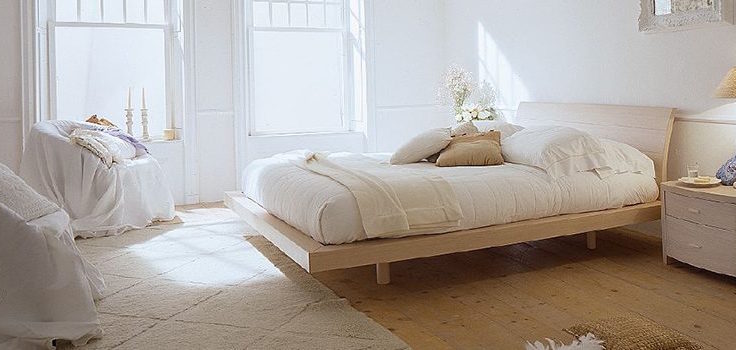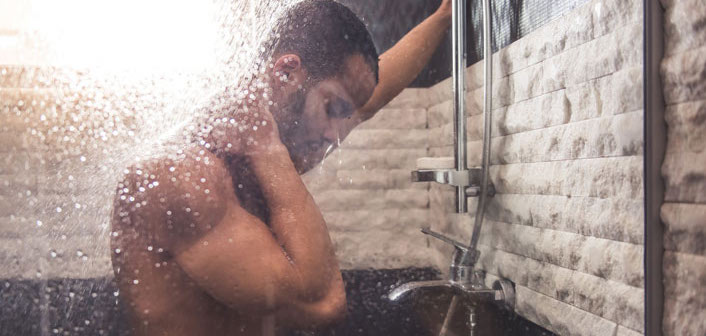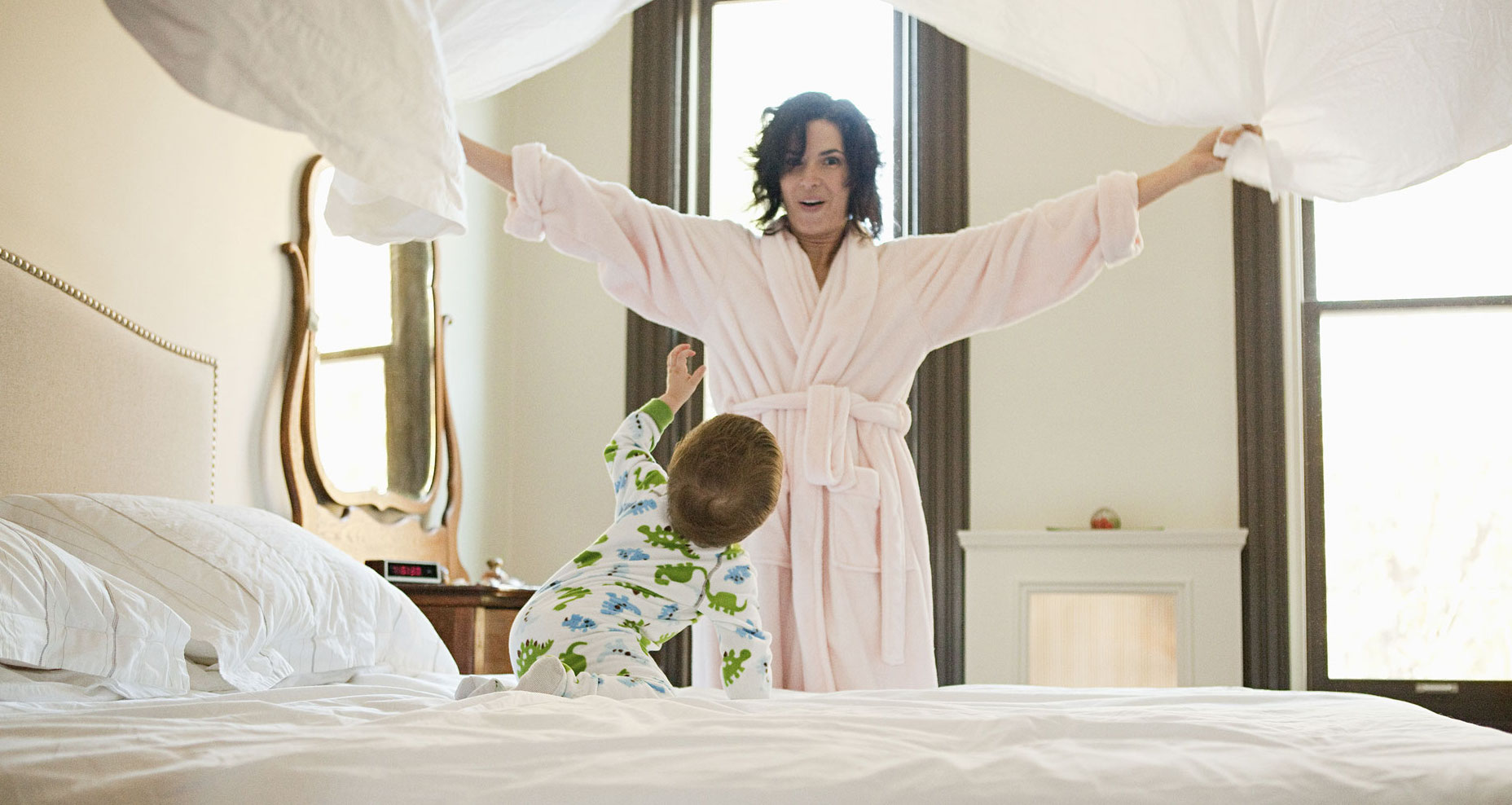You may suffer from allergies without even knowing it so knowing how to allergy proof your bedroom may be more important than you think. If you’re continually sneezing or sniffing, then this can be a significant symptom of allergies and one of the main ways to combat this is by allergy-proofing your room. This is because you spend a large proportion of your life sleeping in your bedroom.
The UK has one of the highest rates of allergy sufferers in the world with more than 20% suffering from one of more allergic disorders. 44% of adults in the UK suffer from at least one allergy.
Allergy flare-ups can disrupt sleep which can then lead to fatigue and sleep deprivation making it more difficult to make it through the day, which can lead to further chronic problems. The worse your allergy symptoms get, the worse your sleep will be.
So, in this guide, we’ll show you the easy steps you can take to make your sleeping space fight off allergies allowing you to breathe and sleep comfortably.
Top Tips for an Allergy Free Bedroom
1. Remove Clutter
It’s natural that over time our homes become more cluttered whether this is books, magazines or old clothes that we’ve collected over the years.
You need to have a clear out of these unnecessary items because these items collect dust, which are ideal conditions for dust mites to thrive which can cause your symptoms to worsen.
Also, by de-cluttering, this will create a much more comfortable and more beautiful living space for you and anyone else that you share your home with.

2. Don’t Let Pets in Your Bed
It may be tempting to share your bed with your pet for comfort and safety, but they can be one of the most significant sources of allergens and dust mites being spread around your bedroom. For example, think about what a dog does throughout the day from running through the grass to rolling in mud.
Dogs will pick up bacteria and microbes such as pollen which they will then bring in the home and into your bed which can increase the severity and frequency of your allergic reactions.
Bringing pets into the bed will also mean that you need to wash your sheets even more often because of the germs they bring in.

3. Anti Allergy Flooring
Carpet is a haven for allergies especially taller and denser carpets that make it easier to catch allergens.
A great alternative is hardwood flooring which is easy to clean but if you’re renting your home or changing the type of flooring isn’t an option then consider switching to a lower less thick carpet that won’t trap as many allergens.
Maintenance of your floor is also, and you should be sure to vacuum at least once per week using a vacuum that has an air filter for additional allergen eliminating qualities.
4. Anti Allergenic Bedding and Mattress
Choosing anti allergenic bedding is another way to allergy proof your bedroom. You should opt for bedding that is produced from organic materials or materials that are hypoallergenic. This is common with natural latex and organic wool, while you can also use dust mite free covers on your mattress and pillow to fight off the adverse effects of their presence.
Getting hypoallergenic bedding is just part of the process because you need to ensure that you minimise the build-up by regularly washing your bedding on at least 40 degrees and then drying in a tumble dryer on the highest heat settings.
Washing your bedding is even more important if you don’t have organic or hypoallergenic bedding.
5. Shower Before Sleeping
After spending a day outside at work or other activities, it’s important to shower because you don’t want to bring allergens into your bed with you. Be sure to dry off entirely because you don’t want moisture to collect on your sheets which can lead to the formation of mould.
If you prefer to air dry, then it's recommended that you have your shower earlier to give it more time to dry naturally.

6. Remove Curtains
Removing curtains can help in making an allergy free bedroom. Curtains trap more allergens and are harder to clean; however, if you have to keep curtains then switch to machine washable curtains that allow you to limit the number of allergens that collect on the fabric.
Ideally, you should switch to blinds because they can be vacuumed frequently, especially during the summer when your windows will be open more often giving the opportunity for pollen and other allergens to float in and attach themselves.
You should try to keep your windows closed as much as possible and use a fan if the room is hot. Alternatively, you need to clean the window frames and sills regularly because this is where condensation and mould can accumulate without you realising.
7. Vacuum Frequently
At least once a week you should vacuum your room especially if you have carpet or pets. Ideally, you should use a vacuum that has a HEPA filter which is a special filter that collects allergens and dust which have settled on to your carpet or furniture.
The HEPA filters are sealed which means that once you collect the allergens, there is no leakage and they’re stored inside the machine. Vacuums that don’t have this filter can often lead to the allergens re-emerging from the vacuum and back into your home.
8. Monitor Bedroom Humidity
Humidity plays a vital role in the concentration of allergens that are present in your room. High humidity can result in mould growth which can lead to breathing difficulties.
A Hygrometer is a simple device that estimates the moisture levels within your home or room. If the reading comes in over 60, then this is something you need to immediately address, because the ideal range is between 30 to 50 per cent humidity.
To change the humidity of a room, a dehumidifier is an ideal solution and works by drawing in existing air from the room and removing the moisture. The treated air is then redistributed back around the room.
Conclusion
All of these points are realistic for you to implement and many don’t cost anything but require changes to your daily habits. Knowing how to allergy proof your bedroom will help enhance the quality of your sleep and breathing.

